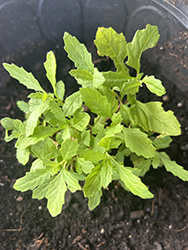
04 Sep The Curious Interpreter
In a prior blog, I wrote about the interpreter’s qualifications from a Human Resources perspective. Today I would like to share my thoughts as an interpreter and tell you about some ways I think we gain knowledge and experience, aside from formal education.
I’ve been an interpreter most of my life. My mother is an interpreter and translator, and from an early age, I was able to interact and observe interpreters work and carry on in their daily lives. I’ve met interpreters who had graduate studies, like my mother, and others who have gained their knowledge from independent study. From what I’ve observed over the years, all interpreters who excel in their profession, regardless of their level of formal education, have two qualities in common- an inquisitive mind and passion for the profession.
Interpreters are good listeners and attentive observers of the world surrounding them. In our daily lives, we encounter all sorts of new words and language usage. No matter where we go or what we’re doing, we are always curious about how to say things and how something works. After all, you never know when that knowledge will come in handy at a trial or a conference. Often, interpreters have worked in several fields and have picked up knowledge that will serve them when performing as conference or legal interpreters.
We are constantly adding new words and understanding to our mental database, information we’ll use to better perform when we’re interpreting. We read, travel, and talk to people about their lives, jobs and anything in between. Always gathering different jargon, idiomatic expressions, and technical information, interpreters also participate in professional training whether it is a requirement to maintain certification or not. However, I believe a great deal of professional growth also happens beyond formal training. This growth, as I said before, is fueled by an inquisitive mind and the love of language.
I hope you can comment on this post and share some of the ways you continuously nurture your professional growth. I’d like to share a couple of examples.
In early Summer I traveled to Mexico. While I was grocery shopping for my dad, I engaged in conversation with two women who were working at the store. I was buying eggs, and I asked them if the eggs were sold by the carton, weight, or by the piece. In Mexico, this can vary. I also asked what they called a carton of eggs. They gave me three different names! And I added this to my notes on the phone. I keep glossaries on my phone’s notes app. Writing words down helps me remember them.
During that visit, I also learned people in Colima don’t use an herb called Epazote or Spanish tea in their cooking. I was surprised to find out this herb which is so common in other areas was practically unknown there. And then I got curious about what it is called in English and added the name to my glossary.
 In Colima, in my dad’s back yard, I also found wild peppers. Small, red, berry-like peppers called Chiltepines in central and northern
In Colima, in my dad’s back yard, I also found wild peppers. Small, red, berry-like peppers called Chiltepines in central and northern Mexico, and Chilpayas in southern Mexico. In English, as far as my research took me, they are called by the Spanish name. My curiosity drove me to learn that all peppers in the world are offsprings of Mexican peppers, and the common ancestor of all peppers is this tiny, hot and flavorful wild pepper I discovered in my father’s backyard. I went online to research how to grow them and I’m now harvesting a second crop. I was also able to grow a particular variety of Epazote I enjoy.
Mexico, and Chilpayas in southern Mexico. In English, as far as my research took me, they are called by the Spanish name. My curiosity drove me to learn that all peppers in the world are offsprings of Mexican peppers, and the common ancestor of all peppers is this tiny, hot and flavorful wild pepper I discovered in my father’s backyard. I went online to research how to grow them and I’m now harvesting a second crop. I was also able to grow a particular variety of Epazote I enjoy.
Besides feeling happy with my gardening efforts, I picked up a few gardening terms in English and Spanish during my research. I sometimes interpret for gardening summits, and I’m sure these additions to my mental database will come in handy at some point.
I can’t think of another profession where no matter what you’re doing, you’re on a permanent pursuit of knowledge whether in formal academic settings or in everyday life. Interpreters are, without a doubt, curious lifelong learners.
Reme Bashi has been a certified court interpreter in Wisconsin since 2008. She began her career as an interpreter and translator in Mexico, at the University of Veracruz, where she majored in pedagogy. Being bilingual in English and Spanish lead her to language teaching and then to translation and interpreting. She was a conference interpreter for several years, interpreting for the media and government events in Mexico.
In the Midwest, Bashi has interpreted in a variety of settings – education, manufacturing, legal, and community. When she’s not interpreting, she likes to learn about new subjects, something that she considers pivotal to becoming a more proficient language access professional. Recently she has immersed herself in hospitality, urban gardening, and ancestry research. Contact: reme_sullivan@yahoo.com


Thank you for this fantastic blog, Reme. When I arrivef in the USA I worked a series of agency temp jobs and with a background in accounting I have worked in many different industries that have now been very helpful in my current profession. However as you point out, I am constantly learning. At work, watching TV, while traveling, reading, even scrapbooking. I remember when we were little, my Cook County Interpreter cousin would visit us in Mexico and she would ask us what an expresion meant and how to say one thing or another and we thought that was strange behavior. Now we (my sisters, niece, son and I) are the “inquisitive relatives “!
What a great comment! I can just imagine your cousin’s inquiries. And now you get it!
Hi,
I thoroughly enjoyed your article, especially since I have lived in Mexico for most of my life and have enjoyed discovering all of these food and gardening terms and YES, they really do vary a lot according to the region of Mexico and packaging terms are enough to drive you batty. It’s a shame we have never met, but there’s still time. Best wishes and you’ve had a good life as an interpreter and translator. ABRAZOS.
Hello Georganne, I would love to meet you! Are you still in Mexico? Thanks for your kind comments on my writing.
Love your epicuriosity! Thank you for a charming post.
Thanks! Your comment encourages me to keep writing.
What a delightful and insightful post! As an interpreter, you’ve beautifully captured the essence of continuous learning and the joy of curiosity.Y
Your experiences in Mexico are a delightful reminder of how language blooms in unexpected places.
Those three names for a carton of eggs? Priceless! What are they called? No Epazote in Colima’s cooking—fascinating! It’s like collecting linguistic wildflowers and tending to them in your mental garden.
Who knew that the fiery Chiltepines and Chilpayas had such a spicy backstory? The fact that all peppers trace their lineage back to Mexican peppers is a linguistic twist plus now you’re cultivating them—talk about hands-on etymology!
Indeed, our profession is a lifelong quest for knowledge. Every encounter, every word learned, contributes to our growth. It’s like building a tower —one word at a time. Thank you for such inspiration and for reminding us that curiosity isn’t just a trait;- it’s our compass.
So here’s to your mental glossaries, your gardening endeavors, and the joy of etymology. May your inquisitive mind continue to bloom, and may your language garden flourish.
Ingrid, your words inspire me and fill me with joy!
The names for “egg carton”…let me check my glossary. Here! One of the women I spoke to is from Chiapas. She says “cartera de huevo”, the lady from Colima says “carpeta de huevo” and in Veracruz we say “cart[on de huevo” What do you call it?
I believe it was translation theorist Douglas who once suggested that if you bring 6 translators together in a room it will seem more like 12 persons, as they flood the space with knowledge gleaned from their different areas of interest and expertise in their diverse languages.. On the darker side, the dean of Cuban translator-interpreters Lourdes Arencibia,, once remarked to me that the obsession interpreters have with language is quite sufficient to blight a marriage!
Outstanding and delightful column, Reme!
Thanks, dear Judy for always encouraging me to write.